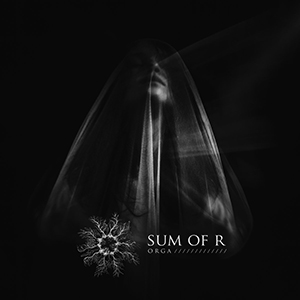 The title of the third full-length album for this Swiss duo is an abbreviation for either organic or organism, and both are fitting descriptors for the music contained within. Across 11 pieces, Reto Mäder (guitars and electronics) and Fabio Costa (drums and electronics) and a few friends construct a sinister creature, living and breathing, but not of this world. With a strong pairing of chaotic experimentation with some more conventionally structured song-like works, it is a captivating and diverse record from beginning to end.
The title of the third full-length album for this Swiss duo is an abbreviation for either organic or organism, and both are fitting descriptors for the music contained within. Across 11 pieces, Reto Mäder (guitars and electronics) and Fabio Costa (drums and electronics) and a few friends construct a sinister creature, living and breathing, but not of this world. With a strong pairing of chaotic experimentation with some more conventionally structured song-like works, it is a captivating and diverse record from beginning to end.
The pieces that stuck with me the most throughout Orga were the ones where Mäder and Costa embraced a semblance of conventionality with both the structures and sounds within.For a piece such as "Cobalt Powder", the opening may be a bit abstract and noisy, but soon more conventional drums (courtesy of Jason Van Gulick) lead the song into a very different direction.This, complete with some clean guitar ends up taking an almost proggy character to it, in the best possible way.This is nicely offset by the weird, animalistic noises far off in the background, which maybe the credited vocal contributions from Rachel Mercedes Buhlmann, but sound anything but human.
A similar feel permeates "Let Us Begin With What We Do Not Want To Be":opening with an ever expanding electronic drone, bowed strings and big dramatic drums soon fill the mix.The sense of drama and bombast is prominent and increases throughout, but the piece ends on an odd note of stuttering instruments and odd processing, almost as if the mixing desk collapsed as the recording ended.The massive organs throughout "Hypnotic State" sit in some odd juncture between funeral service and psychedelic rock, and never really takes a side either way.Instead the sound slowly rots, becoming more and more riddled with decay, building to a peak of intensity and bleakness.
The less conventional sounding moments are just as powerful on Orga as well.Ritualistic rhythms and percussion open "After the Passing of Risk," blended with a distorted guitar squall.All of the parts come together brilliantly though, sounding like the inner workings of some monstrous creature from another world (or another time), before launching into a more traditional conclusion.Strangely delayed and echoed sounds make up the bulk of "To Deny Responsibility is to Perpetuate a Lie," with a healthy amount of reverb thrown in, making for a fascinating sound that is bafflingly ambiguous in its origin.On "We Have to Mark this Entrance," the duo work with wide-open spaces, filling them with booming drums and elongated strings.At first it has a very soundtrack-like vibe to it, but the glitch bits and transition towards an electronic focus at the end results in a very sinister sheen.
Sum of R's self-titled debut and Lights on Water were strong records in their own right, but Orga showcases the duo at an even higher peak.It does not seem as if it is intentionally a concept record, but that sense of an organic darkness clearly appears throughout, linking the stand-alone pieces by mood, if not by a specific theme.Sequenced in a way that balances out the more rhythmic moments with the looser, more improvised feeling ones, Sum of R creates a marvelous consistency from beginning to end.
samples:
 
Read More

